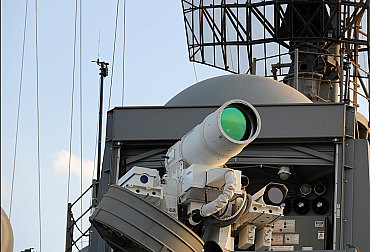US approves major arms sales to European allies: Germany, Italy, and Denmark to receive advanced weaponry
In a significant development reflecting the growing global demand for advanced military technology, the U.S. State Department has authorized several high-profile arms deals with key European allies, including Germany, Italy, and Denmark. The combined value of these potential sales exceeds $5.8 billion, underscoring the strategic importance of these partnerships amidst ongoing geopolitical tensions, particularly the war in Ukraine.

Germany to Receive $5 Billion Worth of Patriot Missiles
The most notable of these transactions is the potential $5 billion sale of approximately 600 Patriot missiles to Germany. These missiles, known as PAC-3 Missile Segment Enhancement (MSE) interceptors, are produced by Lockheed Martin and are considered among the most advanced air defense systems in the world. The PAC-3 MSE has become increasingly critical as the conflict in Ukraine continues to highlight the necessity for robust air defenses.
Germany has been a key player in supporting Ukraine, having already supplied Patriot defense systems and missiles to bolster Ukraine’s defenses against Russian aggression. The new acquisition will not only enhance Germany's own air defense capabilities but will also ensure that it can continue to support its allies in future conflicts.
The production of these missiles is being ramped up by Lockheed Martin, with RTX subsidiary Raytheon handling the production of the system's launcher, radar, and other ground systems. Boeing, which manufactures the missile’s seeker, is also scaling up production to meet the high demand, though supply constraints have been reported.
Italy Expands Its Fleet with $738 Million MQ-9 Reaper Drone Deal
In addition to the Patriot missile deal with Germany, the U.S. has also greenlit the sale of six Block 5 MQ-9 Reaper drones to Italy. This $738 million deal includes ground control stations and other associated subsystems, which will expand Italy's existing fleet of MQ-9s. The Reaper drones, manufactured by General Atomics, are among the most advanced unmanned aerial vehicles (UAVs) in operation today, used extensively for surveillance and precision strikes.
Italy's acquisition of these drones reflects its commitment to enhancing its military capabilities, particularly in intelligence, surveillance, and reconnaissance (ISR) missions. The MQ-9 Reapers will provide Rome with a significant boost in operational flexibility and long-range strike capabilities, key components in modern warfare.
Denmark to Acquire GPS Guidance Kits for Smart Artillery
Rounding out the arms deals is Denmark's purchase of 5,832 M1156 Precision Guidance Kits, valued at $85 million. These kits, produced by Northrop Grumman, are designed to convert conventional 155mm artillery shells into precision-guided munitions. This capability allows for greater accuracy and effectiveness in artillery strikes, reducing collateral damage and increasing the lethality of Denmark's artillery forces.
Strategic Implications and Record-Breaking US Weapon Sales
These arms deals are not only significant in terms of their scale but also in their timing. The notifications from the Defense Security Cooperation Agency (DSCA) mark the beginning of a congressional review process, where lawmakers have 30 days to block the sales—though such actions are unlikely given the close ties between the U.S. and these European nations.
The approved deals also highlight the continued growth in U.S. foreign military sales, which have already surpassed $80 billion in fiscal 2024, with expectations to exceed $100 billion by the end of the year. This marks a dramatic increase from the previous fiscal year's record of $66.3 billion, indicating a booming demand for U.S.-made military equipment worldwide.
As the global security landscape continues to evolve, these arms sales reflect the deepening military cooperation between the U.S. and its European allies, as well as the ongoing efforts to ensure that these nations are well-equipped to face emerging threats.








